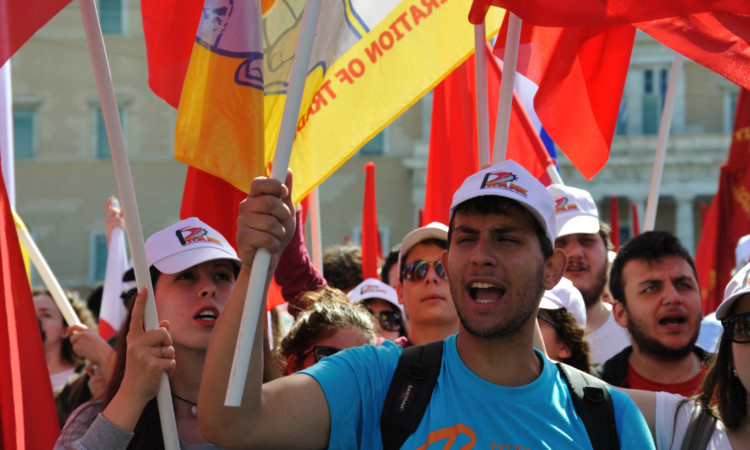I recently returned from my first visit to Greece, the country which found itself at the epicentre of the eurozone crisis.
It was clear that the scars from the economic recklessness which brought the nation to its knees in 2010 continue to run deep.
To recap, the situation Greece found itself in was so serious that a bailout package amounting to more than 100 billion euros one of the largest financial packages assembled in history was not enough to keep the wolves from the door.
Tens of thousands lost their jobs as the government crumbled under the relentless pressure bearing down on Athens from its new European paymasters, and lifeline infrastructure everything from healthcare to the emergency services was devastated.
I visited Heraklion in Crete capital city of the largest of the Greek islands, with a roughly similar population base to that of Dundee.
The city was thronging with people but I was struck by how few were actually doing anything constructive and how little business was going on.
Take a step off the main tourist drag and there was side street upon side street of dusty unoccupied shop units.
Drive out into the suburbs and larger industrial warehouses were locked up and silent.
Instead, there were large groups of men and women trying to make a few euros by providing street entertainment to tourists and, most strikingly, there were also children of six and seven years old trying to earn a crust.
Tourism is the only game in town and while the guaranteed Mediterranean sun will forever draw people to its shores, I suspect the financial returns enjoyed by Greek hoteliers, restaurateurs and bar owners are significantly less than they once were despite inflated prices for services.
I talked to one multilingual hotel worker who hoped to be able to put 3,000 euros aside for six months’ graft doing three split shifts a day, six days a week in a major resort where his bed and board were paid for.
But by many people’s standards he is doing well. The jobless rate is currently sitting at 26.5% slightly down from the historic high of 28% seen late last year and unemployment among young people is sitting at a truly incomprehensible 56.9%.
A whole generation of smart, well-educated and capable young Greeks are simply falling by the wayside through lack of opportunity. It is entirely plausible that they may never become economically active in their lifetimes.
While the austerity riots have died down and the focus of world news has shifted away from Athens, the legacy of Greece’s calamitous financial collapse remains and will continue to cast a long shadow over the country’s prospects for years to come.
It is a modern Greek tragedy in every sense of the word.
While the Greek situation is lamentable, we do not have our own troubles to seek when it comes to youth unemployment.
More than 53,000 young Scots are out of work a figure equating to 18.8% of those making their first foray into the jobs market and a rate double that of some other European economies where vocational education is encouraged and promoted.
The Commission for Developing Scotland’s Young Workforce, ably chaired by billionaire oil entrepreneur Sir Ian Wood, has spent the last 18 months examining the problem and developing potential solutions in order to cut youth unemployment in Scotland by 40% by 2020.
Sir Ian essentially said yesterday that an ingrained culture that valued higher education ahead of vocational education that is academic achievement over the development of technical skills was standing in the way of our young people improving their lives by accessing gainful employment.
I have long been of the opinion that there is value and pride in whatever a person chooses to do to make a living.
A flourishing economy needs a mix of skills in its labour base. We need plumbers, mechanics, builders and joiners just as much as we need a strong academic, technical skills and research and development base.
I therefore fully endorse the commission’s recommendations and hope a much stronger work pathway can be laid out for those young people whose abilities and interests differ from the traditional academic route.
*It seems SSE is on the verge of walking away from an agreement to promote the Port of Dundee as a renewables hub.
The energy firm stood shoulder to shoulder with Alex Salmond in 2011 as the First Minister hailed a memorandum of understanding which seemed to light a pathway for Dundee’s renewable energy ambitions. The prospect of millions of pounds of inward investment and hundreds of new jobs was dangled.
But there has been little tangible progress and SSE’s admission last week that it may formally withdraw from the agreement came as little surprise to me.
For various reasons finance, infrastructure and technology among them the offshore wind sector is still a long way from reaching maturity in Scotland, while other forms of green energy are even further away from commercial reality.
The renewables industry is in danger of losing momentum. Mr Salmond and his counterparts at Westminster must find a way to re-energise it, and to do it quickly.
